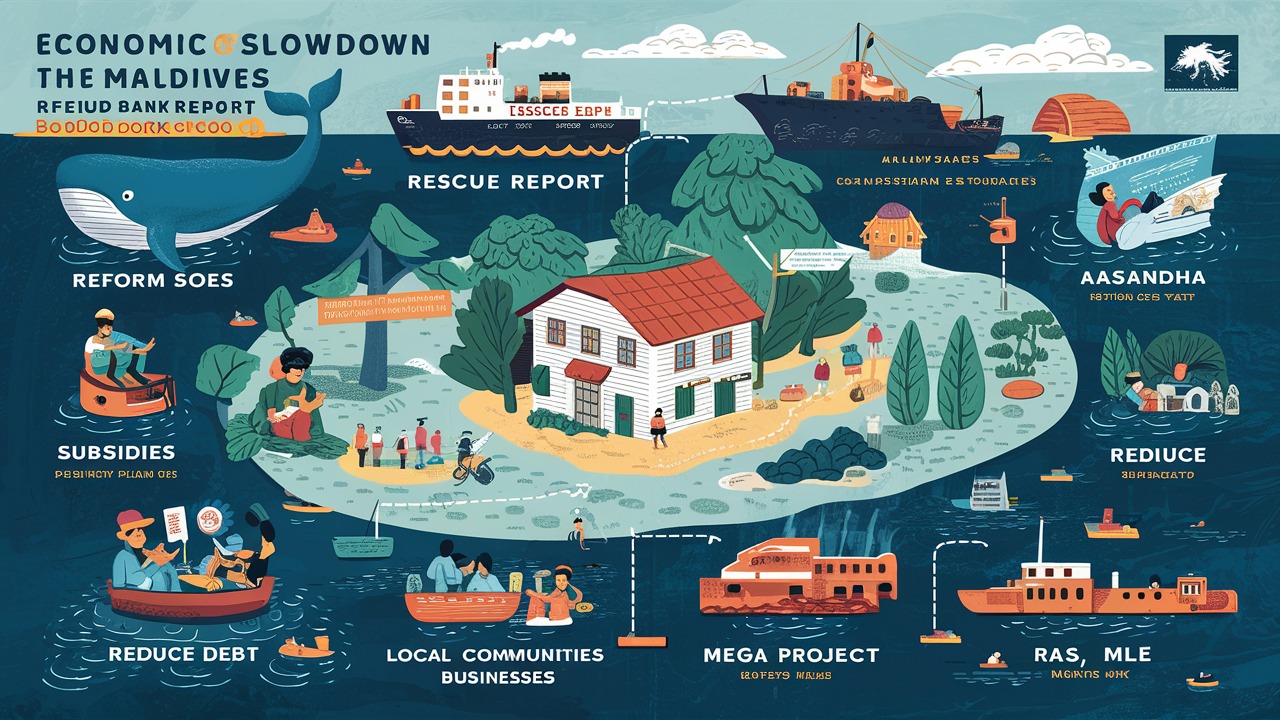Malé, Maldives — The Maldives’ economy is projected to grow by 4.7% in 2024, a significant downward revision that signals a deceleration in growth momentum, according to a World Bank report. The report, titled “Scaling Back & Rebuilding Buffers,” outlines several challenges, including external and fiscal vulnerabilities, that could worsen without immediate fiscal reforms.
Tourism, the linchpin of the Maldivian economy, is experiencing a slowdown despite an uptick in tourist arrivals. The World Bank report points out that reduced spending per tourist and shorter stays are mitigating the positive effects on GDP growth.
Fiscal consolidation is essential, the report stresses, though it is likely to impact household incomes through subsidy reforms and reduced government expenditure and investment.
Alarmingly, public debt in the Maldives reached $8 billion in 2023, equivalent to 122.9% of GDP. Without significant fiscal adjustments, this debt is expected to rise in the medium term, threatening the country’s debt sustainability. The Maldives faces substantial debt servicing obligations, averaging $512 million annually for 2024 and 2025, with a dramatic increase to $1.07 billion in 2026.
“Implementing the government’s fiscal reform agenda is essential to sustaining economic growth in Maldives,” said Faris Hadad-Zervos, World Bank Country Director for Maldives, Nepal, and Sri Lanka. “The World Bank remains committed to supporting Maldives in these reform efforts.”
The report underscores the urgency for the Maldivian government to execute its recently announced fiscal reforms. It emphasizes the need for clear communication with the public and an effective compensation mechanism for vulnerable groups. Additionally, it recommends diversifying the economy to reduce reliance on tourism, minimizing the role of state-owned enterprises, and fostering private sector job creation.
Economic indicators highlight the pressing need for reforms. Real GDP growth, which was 13.9% in 2022, is expected to moderate to 4.7% in 2024. Inflation is projected to rise to 7.5% in 2024, up from 2.9% in 2023. The fiscal balance remains in deficit, projected at 12.2% of GDP in 2024, while the debt-to-GDP ratio is expected to slightly decline to 122.1% in 2024.
Addressing weaknesses in state-owned enterprises, enhancing the efficiency of health spending, and improving strategic investment planning are also crucial for the Maldives’ fiscal and economic health, the report notes. Establishing a targeting mechanism to replace inefficient subsidies is highlighted as a significant step towards protecting vulnerable populations and ensuring equitable economic growth.
The World Bank’s forecast calls for urgent and comprehensive fiscal reforms to mitigate rising debt risks and external vulnerabilities, advocating for a more sustainable economic future for the Maldives.












